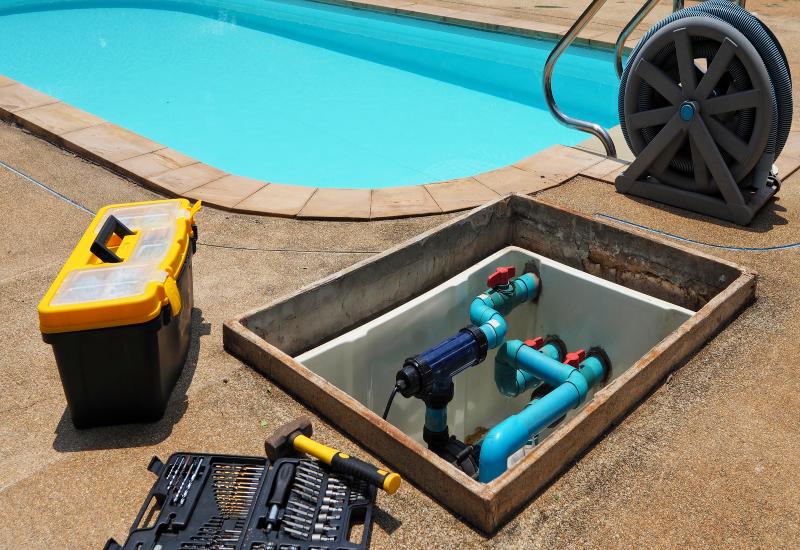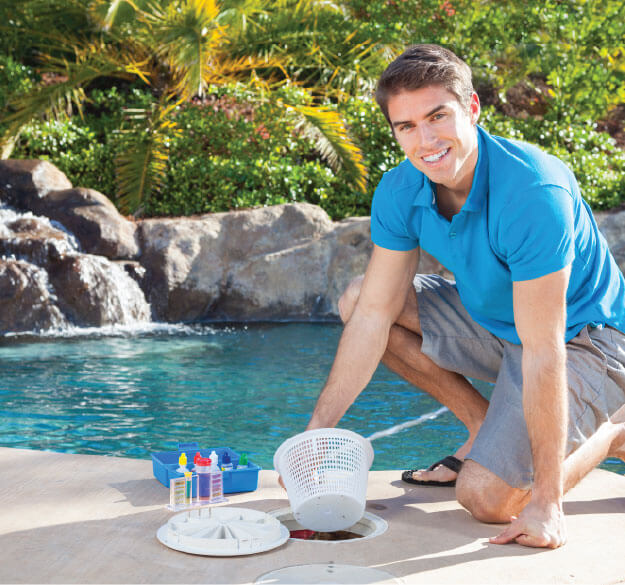Top Pool Maintenance Tasks for a Safe and Enjoyable Swimming Season
As the swimming season approaches, it becomes imperative to address key pool maintenance tasks that ensure both safety and enjoyment. Maintaining proper water chemistry is crucial, as imbalances can lead to health risks and equipment damage. Additionally, the cleanliness and functionality of filters and pool equipment play a significant role in overall pool performance. Regular skimming and vacuuming are essential for aesthetic appeal and hygiene, while the management of surrounding areas contributes to a safer swimming environment. Understanding the specific measures required for each task can significantly impact your pool experience this season.
Check Water Chemistry
Regularly checking water chemistry is essential for maintaining a safe and enjoyable swimming environment. Proper water chemistry not only protects swimmers' health but also prolongs the lifespan of pool equipment and surfaces. Key parameters to monitor include pH levels, chlorine concentration, alkalinity, and calcium hardness.
The ideal pH range for pool water is between 7.2 and 7.8. A pH level outside this range can lead to skin irritation, eye discomfort, and reduced effectiveness of disinfectants. Chlorine levels should typically be maintained between 1 to 3 parts per million (ppm) to ensure adequate sanitation. Low chlorine levels can result in algae growth and bacterial contamination, while excessively high levels may cause irritation.
Total alkalinity is another critical factor, with a recommended range of 80 to 120 ppm. This measurement helps stabilize pH levels and prevent fluctuations. Additionally, calcium hardness should be kept between 200 and 400 ppm to protect pool surfaces from erosion or scaling.

Clean and Maintain Filters
While ensuring optimal water chemistry is crucial, maintaining the pool filters is equally important for a clean and safe swimming environment. Pool filters play a vital role in removing debris, dirt, and contaminants from the water, thereby enhancing the overall quality of the pool.
To maintain filters effectively, it is essential to clean them regularly, as clogged filters can lead to poor circulation and increased strain on the pool pump. For cartridge filters, remove the cartridge and rinse it with a hose to dislodge accumulated debris. It is advisable to soak it in a filter cleaner every few months for thorough cleaning. For sand filters, backwashing is necessary to flush out trapped particles; this should be done when the pressure gauge indicates a rise of 8-10 psi above the normal operating level.
Additionally, it is important to inspect the filter for wear and tear. Replace any damaged components promptly to ensure efficient function. By adhering to a routine cleaning and maintenance schedule for pool filters, you not only prolong their lifespan but also guarantee a healthier swimming environment for you and your family.
Inspect Pool Equipment
A thorough inspection of pool equipment is essential to ensure the optimal functioning and safety of your swimming facility. Regular checks help identify potential issues before they escalate into costly repairs or safety hazards. Start by examining the pool pump, ensuring it operates smoothly without unusual noises or vibrations. Inspect the motor for any signs of wear or overheating.
Next, assess the pool heater, checking for leaks and verifying that the thermostat is functioning correctly. A well-maintained heater not only enhances comfort but also improves energy efficiency. Don't overlook the filtration system; inspect hoses, valves, and fittings for cracks or leaks that could compromise water quality.
Additionally, evaluate the pool cleaner and any automated systems in place. Regularly test these devices to ensure they are effectively maintaining your pool's cleanliness. Lastly, check all electrical connections and ensure they are secure and free from corrosion. Addressing these elements during your inspection will contribute to a safe and enjoyable swimming season, minimizing the risk of equipment find out failure and maintaining the integrity of your pool environment. Pool Inspection. Prioritizing this task is crucial for both aesthetic and safety reasons
Skim and Vacuum Regularly
Maintaining clarity and cleanliness in pool water is crucial for the enjoyment and health of swimmers. Regular skimming and vacuuming are essential tasks to achieve this goal effectively. Skimming involves using a net to remove debris such as leaves, insects, and other floating particles from the water's surface. This not only enhances the aesthetic appeal of the pool but also prevents debris from sinking to the bottom, where it can contribute to algae growth and water quality issues.
Vacuuming, on the other hand, targets the settled dirt and debris that accumulates on the pool floor. Manual vacuums or automatic pool cleaners can be employed to ensure thorough cleaning. It is advisable to vacuum the pool at least once a week, or more frequently during peak usage periods or after heavy storms.
Both skimming and vacuuming contribute significantly to reducing the strain on the pool filtration system, thereby prolonging its lifespan and enhancing overall water circulation. By incorporating these routine maintenance practices, pool owners can ensure a safe and enjoyable swimming environment, promoting health and satisfaction for all users throughout Discover More Here the swimming season.
Manage Pool Surroundings
Effective management of pool surroundings plays a vital role in maintaining not only the cleanliness of the water but also the overall enjoyment of the swimming area. A well-kept environment minimizes debris accumulation and enhances the aesthetic appeal of the pool area, creating a more inviting atmosphere for swimmers.
Begin by ensuring that landscaping elements, such as trees and shrubs, are appropriately trimmed. Overhanging branches can drop leaves and debris into the pool, necessitating more frequent cleaning. Pool Inspection. Furthermore, consider the placement of patio furniture, umbrellas, and other amenities; they should be arranged to reduce wind-blown debris while providing comfortable lounging options
Regularly inspect the pool deck for cracks or uneven surfaces that could pose safety hazards. Ensuring proper drainage around the pool is crucial to prevent water buildup that can lead to algae growth. Additionally, employing a barrier, such as a fence, not only enhances safety but also helps keep pets and wildlife away from the pool area.
Conclusion
